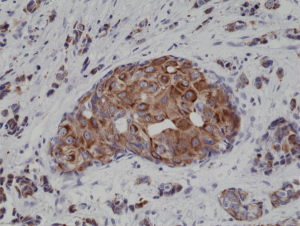Cookie preferences
This website uses cookies, which are necessary for the technical operation of the website and are always set. Other cookies, which increase the comfort when using this website, are used for direct advertising or to facilitate interaction with other websites and social networks, are only set with your consent.
Configuration
Technically required
These cookies are necessary for the basic functions of the shop.
"Allow all cookies" cookie
"Decline all cookies" cookie
CSRF token
Cookie preferences
Currency change
Customer-specific caching
FACT-Finder tracking
Individual prices
Selected shop
Session
Comfort functions
These cookies are used to make the shopping experience even more appealing, for example for the recognition of the visitor.
Note
Show the facebook fanpage in the right blod sidebar
Statistics & Tracking
Affiliate program
Conversion and usertracking via Google Tag Manager
Track device being used

| Item number | Size | Datasheet | Manual | SDS | Delivery time | Quantity | Price |
|---|---|---|---|---|---|---|---|
| REV-31-1162-00-R100 | 100 µl | - | - |
3 - 9 business days* |
483.00€
|
If you have any questions, please use our Contact Form.
You can also order by e-mail: info@biomol.com
Larger quantity required? Request bulk
You can also order by e-mail: info@biomol.com
Larger quantity required? Request bulk
Recombinant Antibody. This antibody reacts to human CK18 (Cytokeratin-18). Applications: WB, IHC.... more
Product information "Anti-Cytokeratin-18 (human), Rabbit Monoclonal (RM279)"
Recombinant Antibody. This antibody reacts to human CK18 (Cytokeratin-18). Applications: WB, IHC. Source: Rabbit. Liquid. 50% Glycerol/PBS with 1% BSA and 0.09% sodium azide. Cytokeratins are keratin proteins found in the intracytoplasmic cytoskeleton of epithelial tissue (at least 20 different polypeptides). They are an important component of intermediate filaments, which help cells resist mechanical stress. Expression of these cytokeratins within epithelial cells is largely specific to particular organs or tissues. The subsets of cytokeratins which an epithelial cell expresses depends mainly on the type of epithelium, the moment in the course of terminal differentiation and the stage of development. Thus a specific cytokeratin expression profile allows the identification of epithelial cells. Furthermore, this applies also to the malignant counterparts of the epithelia, (carcinomas). Cytokeratin subtype expression patterns are used to an increasing extent in the distinction of different types of epithelial malignancies. The cytokeratin antibodies are not only of assistance in the differential diagnosis of tumors using immunohistochemistry on tissue sections, but are also a useful tool in cytopathology and flow cytometric assays. Cytokeratin-18 (Keratin 18, CK18) belongs to the type A (acidic) subfamily of low molecular weight keratins and exists in combination with cytokeratin-8. Tissues from gastrointestinal tract, respiratory tract and urogenital tract, as well as endocrine and exocrine tissues and mesothelial cells are positive for cytokeratin-18. Further, cytokeratin-18 is found primarily in non-squamous epithelia and is present in a majority of adenocarcinomas and ductal carcinomas, but not in squamous cell carcinomas. Mutations in the cytokeratin-18 gene have been linked to cryptogenic cirrhosis. During apoptosis, keratin filaments are altered and remarkably stable keratin fragments are generated. Activation of caspases leads to proteolysis of numerous cellular proteins, including structural components of epithelial cells. Cytokeratin-18 along with cytokeratin-8 are the major components of intermediate filaments in simple epithelial cells, and the only keratin pair in normal hepatocytes. Cytokeratin-18 is often used to identify differentiated isolated hepatocytes. During apoptosis, cytokeratin-8/cytokeratin-18 fragments are dramatically reorganized and cytokeratin-18 is cleaved by caspases at multiple sequence sites. Cleavage of cytokeratin-18 is an early event occurring during apoptosis.
| Keywords: | CK18, CK-18, Cytokeratin 18 |
| Supplier: | RevMAb Biosciences |
| Supplier-Nr: | 31-1162-00 |
Properties
| Application: | WB, IHC |
| Antibody Type: | Monoclonal |
| Clone: | RM279 |
| Conjugate: | No |
| Host: | Rabbit |
| Species reactivity: | human |
| Format: | Purified |
Database Information
| KEGG ID : | K07604 | Matching products |
| UniProt ID : | P05783 | Matching products |
| Gene ID | GeneID 3875 | Matching products |
Handling & Safety
| Storage: | -20°C |
| Shipping: | +4°C (International: +4°C) |
Caution
Our products are for laboratory research use only: Not for administration to humans!
Our products are for laboratory research use only: Not for administration to humans!
Information about the product reference will follow.
more
You will get a certificate here
Viewed







